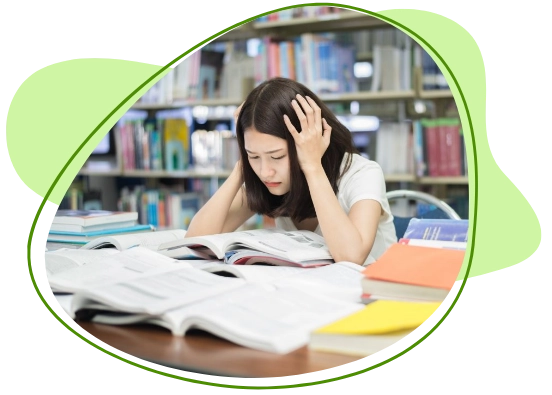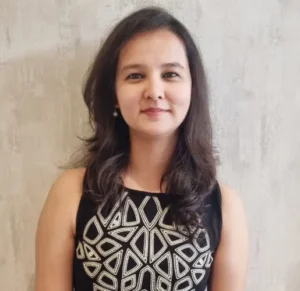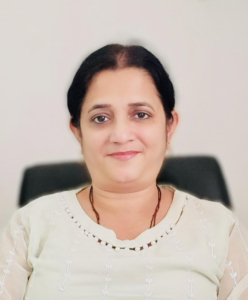Academic or learning difficulties are usually a concern for parents and teachers when the child has been struggling a lot to perform simple reading, writing, or calculation related tasks. Generally, children with average or better intellectual functioning are the ones who get evaluated much later than when the symptoms are quite evident in the formative years or preschool or primary schooling.
These difficulties become a hindrance in a child’s academic progress. Some of the most common conditions include Specific Learning Disabilities like Dyslexia, Dysgraphia or Dyscalculia. However, these difficulties also come along with ADHD and language disorders.

Children having difficulty in reading, writing, comprehension, or concentration are the ones already having average or higher intelligence that must get evaluated for learning disability. Early identification and tailored interventions, such as specialized education plans and therapy, can mitigate these hurdles.
Emotional support and a nurturing environment are crucial for a child’s confidence and well-being. Understanding and addressing learning difficulties collaboratively, involving educators, parents, and professionals, can empower children to navigate academic challenges, fostering resilience and enabling them to reach their full potential in the educational journey.
Symptoms of Dyslexia
Symptoms of Dygraphia
Symptoms of Dyscalculia
Remedial Education / Special Education
In order to address academic difficulties, special educators are essential because they offer students with a variety of learning needs focused support. They create individual education plans (IEP), learning strategies, evaluate each student’s strengths and weaknesses, and use specialized teaching techniques. In order to establish inclusive learning environments, encourage positive behavioral interventions, and make use of adaptive technologies, special educators work in partnership with educators, parents, and other professionals. Their knowledge enables learning-disabled students to succeed academically and promote overall development.Psychologists are crucial in helping children with academic difficulties or other challenges deal with the emotional effects on them. They offer vital support by using counseling and specialized interventions to increase confidence and self-esteem. Psychologists establish a supportive atmosphere that builds resilience and gives kids more confidence to face obstacles, which supports both academic and emotional development.

Children who struggle academically frequently also have issues with their fine and gross motor skills, muscular tone, and sensory processing. By evaluating and improving these foundational skills, occupational therapists are vital for tackling these challenges. Occupational therapy seeks to enhance a child’s capacity for self-care, enhance motor skills, and successfully manage sensory challenges through focused interventions. These goals ultimately support the child’s daily functioning and overall academic betterment.
Diagnosis involves a comprehensive assessment by a qualified professional, including standardized tests of reading, writing, and related skills, as well as a thorough examination of educational and medical history.
Dyslexia is a lifelong condition, but with appropriate support and intervention, individuals with dyslexia can develop effective coping strategies and achieve success in academic and professional pursuits.
Dyslexia can manifest differently among individuals, but there is no strict classification into subtypes. Interventions are typically tailored to individual needs, focusing on strengthening specific skills.
Struggles with reading and writing can impact self-esteem. Professionals can discuss the emotional aspects of dyslexia and strategies to promote a positive self-image.
Dyslexia primarily affects reading, spelling, and writing. However, it can also impact areas such as organizational skills and memory. Professionals can discuss the broader impact and strategies for addressing associated challenges.
Yes, dyslexia can be identified in adults, and diagnosis is possible at any age. Professionals can conduct assessments to identify dyslexia and recommend appropriate interventions.
Yes, the challenges of dyslexia can be misunderstood. Professionals can educate teachers, peers, and parents about dyslexia to dispel misconceptions and promote understanding.
Diagnosis involves a comprehensive assessment by a qualified professional, including evaluations of writing skills, fine motor coordination, and cognitive processing. Educational and medical history is also considered.
Dysgraphia is a lifelong condition, but with appropriate support, individuals can succeed academically and professionally. Strategies may include accommodations, assistive technology, and alternative methods of communication.
Diagnosis involves a comprehensive assessment by a qualified professional, including evaluations of writing skills, fine motor coordination, and cognitive processing. Educational and medical history is also considered.
Yes, assistive technologies such as word processors, speech-to-text software, and graphic organizers can support individuals with dysgraphia. Professionals can guide educators in implementing these tools.
Yes, struggling with written expressions can impact self-esteem. Professionals can discuss the emotional aspects of dysgraphia and work with individuals to foster a positive self-image.
Yes, the challenges of dysgraphia can be misunderstood. Professionals can educate teachers, peers, and parents about dysgraphia to dispel misconceptions and promote understanding.
Dr. Ms. Urja Shah
M.A. in Psychology and Diploma in Remediation
Asst. Psychologist and Remedial Educator
Experience : 2 Years
Expertise: ADHD, Autism Spectrum Disorder, Intellectual Disability, LD, Social Anxiety & Separation Anxiety.
Charges: Rs. 1500 (for 60 mins)
Speaks: English, Hindi, Gujarati
Mode of Sessions: Offline / In person
Ms. Urja Shah is a Child Psychologist at Reflect Within. She has a master’s degree in psychology with Specialization in Child, from University of Mumbai. She is a trained mental health professional who has specialised in administering assessment and treatment for children and adolescents. Urja has previously worked with the Institution of Exceptional Children, Vallabhdas Dagara Indian Society – Mentally Challenged and Sion Hospital. She is compassionate and empathetic, and has a genuine desire to help children who are struggling with emotional, behavioural, or developmental issues, overcome their challenges and reach their full potential. She values the saying by Haim Ginott that – “Children are like wet cement. Whatever falls on them makes an impression.”

Dr. Dhruv Parmar
M.B.B.S, M.D. Psychiatry
Psychiatrist
Experience : 5 Years
Expertise: Mood Disorders, Personality Disorders, Neurodevelopmental Disorders, Behavior Issues, Schizophrenia, Addiction, Substance Abuse, Suicidal Thoughts, OCD, Anxiety Disorders, Psychosis,
Charges: Rs. 2000 (for 60 mins)
Speaks: English, Hindi and Gujarti
Mode of Sessions: Online / In person
Dr. Dhruv J. Parmar is a Consultant Psychiatrist, Sexologist, De-addiction and Insomnia specialist. In Addition to his Degree in Psychiatry from LTMMC, Sion, Mumbai, he has done his fellowship in Psychosexual Medicine from JSS University, Mysuru, Advanced course in management of Addictive Disorders from NIMHANS, Bengaluru and the World Psychiatric Association’s course on management of Insomnia. Has been a speaker in various National and International Conferences. Has numerous publications in National and International Journals. Apart from treating the core Psychiatric issues, he specialises in management of psychosexual issues, Addictive Disorders and Insomnia. He strongly believes in De-stigmatising mental health issues and that the key to a healthy body is a healthy mind. He lives by his motto, ‘Its ok to not be ok’ and makes sure it’s a key in his treatment plan. His aim is to help you cultivate mindfulness, insight and a desire for personal growth in all areas of your life. The goal is not to simply reduce feelings of stress, anxiety, depression or any other illness, but to help you thrive in your personal and professional endeavours.
Mr. Swapnil Bhopi
M.A., MPhil RCI NO. A71974
Clinical Psychologist & Psychotherapist
Experience : 10 Years
Expertise: Anxiety, PTSD, OCD, Depression, Schizophrenia, Addiction, Eating Disorder, ADHD, Marital Issues.
Charges: Rs. 3000 (for 60 mins)
Speaks: English, Hindi and Marathi
Mode of Sessions: Online / In person
Mr. Swapnil Bhopi is a Clinical Psychologist with over 10 years of experience in the field. His enthusiasm, persistence, punctuality and mindfulness helped him in achieving great heights in benefitting the individual and the society at large. He not only has conducted various workshops on topics such as stress management, suicide prevention and de-addiction awareness at various government and private organisations but also has been interviewed on these topics by various newspapers and social media. He also has the experience of working as a resource person for CNE by “Maharashtra Nursing Council” and at various reality shows.

Dr. Helly Shroff
B.O.Th., M.O. Th
Occupational Therapist
Experience : 7 Years
Expertise: ADHD, Autism, Cerebral Palsy, and Developmental delays, Parkinson, Dementia, Stroke, MND, Multiple Sclerosis
Charges: Rs. 2000 (for 60 mins)
Speaks: English, Hindi, Gujarati and Marathi
Mode of Sessions: Offline / In person
Dr. Helly Shroff currently serves as an Occupational Therapist at Reflect Within. She holds a Bachelor’s degree (B.O.TH) and a Master’s degree (Neuro) in Occupational Therapy from KEM Hospital. With over five years of experience in the field, she has worked at prestigious institutions such as Kokilaben Dhirubhai Ambani Hospital, the Multiple Sclerosis Society, the Haemophilia Society, and Disha Counselling Centre. Her expertise spans a wide range of cases, including ADHD, Autism, Cerebral Palsy, and Developmental delays.
Dr. Shroff is a compassionate Occupational Therapist dedicated to providing the highest quality patient care. She possesses the ability to develop treatment programs that enhance a client’s capacity to carry out daily activities and occupations independently, thereby boosting their confidence. Additionally, she specialises in addressing Adult Neurological conditions, including Stroke Rehabilitation, Parkinson’s disease, Neuropathies, Brain injuries, Dementia, MNDs (Motor Neuron Diseases), and Multiple Sclerosis.

Ameet Thanky
(B.P.Th) Clinical Physiotherapist (Paediatric)
Physiotherapist
Experience : 15 Years
Expertise: Cerebral Palsy, Bell’s Palsy, hydrocephalus, microcephalus, Spina Bifida.
Charges: Rs. 2000 (for 60 mins)
Speaks: English, Hindi, Gujarati and Marathi
Mode of Sessions: Offline / In person
Dr. Ameet Thanky is an empathetic physiotherapist with over 15 years of experience in paediatric and adult physiotherapy. He has demonstrated success in facilitating treatment for both outpatients/ inpatients by his fine diagnostic skills, in-depth patient evaluation and developing a treatment plan in order to achieve patient mobility. He majorly deals with patients having Cerebral Palsy cases needing corrective surgery, pre-op and post-op rehabilitation, Syndromic Cases with developmental delay, babies with prolonged NICU stay, premature babies, Bell’s Palsy – facial paralysis, bladder rehabilitation and a lot more.
He is a skilled medical care professional with wholehearted dedication towards patient care and willingness to learn & keep abreast of new developments in the medical field.
His main motto since he started his practice is – “To always be patient centric. Giving them an optimistic reality check so that an acceptance develops towards the illness and planning a suitable therapy program to achieve a desirable therapy goal. Also framing home ex’s program to maintain the progress. Busting the myths related to the illness.”

Dr. Rohit P Deshmukh
M.B.B.S, M.D. Psychiatry, DNB, MIPS
Psychiatrist
Experience : 8 Years
Expertise: Mood Disorders, Personality Disorders, Neurodevelopmental Disorders, Behavior Issues, Schizophrenia, Addiction, Substance Abuse, Suicidal Thoughts, OCD, Anxiety Disorders, Psychosis, Delusions
Charges: Rs. 2000 (for 60 mins)
Speaks: English, Hindi, Marathi
Mode of Sessions: Online / In person
Dr. Rohit Deshmukh holds an M.D. in Psychiatry, which he earned from the renowned Grant Government Medical College and Sir J.J. Group of Hospitals in Mumbai. His extensive medical training and clinical exposure have equipped him with the expertise to address a wide spectrum of mental health conditions, thanks to his comprehensive experience gained during his tenure at Sir J.J. Hospital. In addition to this, he has also dedicated his professional efforts to the Department of Child and Adolescent Psychiatry at Nair Hospital.
His approach to mental health is guided by a profound belief: he views mental illness not merely as a medical condition but as a product of an individual’s life experiences and the circumstances that surround them. This perspective enables him to gain a deep understanding of the underlying factors contributing to a person’s mental health challenges, allowing him to take a comprehensive and holistic approach to their treatment and well-being.

MRS. SNEHA RAO PARMAR
M.A., REBT Certified
Counselling Psychologist & Psychotherapist
Experience : 15 Years
Expertise: Anxiety, PTSD, OCD, Depression, Schizophrenia, Addiction, Eating Disorder, ADHD, Marital Issues.
Charges: Rs. 2000 (for 60 mins)
Speaks: English, Hindi, Gujarati and Marathi
Mode of Sessions: Offline/ In person
Mrs. Sneha Rao Parmar is a counselling psychologist and a family therapist with over 15 years of experience. She has wide expertise in, namely, couple, family counselling & marital therapy, adult counselling that focuses on stress management and anxiety issues and working with children and adolescents with special needs, assessing children with academic difficulties, developmental delays, behavioural problems, and counselling parents. Additionally, she has been a guest lecturer at various organizations such as Arya Vidya Mandir and Mary Immaculate as a visiting faculty. she also has conducted CRE workshops with teachers across Maharashtra for RCI. She is currently associated with SOPAN as a lecturer for B.Ed. students. One of her favourite quotes is, “If it doesn’t challenge you, it doesn’t change you.

Ms. Kasturi Roy
M.A. in Applied Clinical Psychology
Clinical Psychologist & Psychotherapist
Experience : 6 Years
Expertise: Anxiety PTSD, OCD, Depression, Schizophrenia, Addiction, Eating Disorder, ADHD, Marital Issues.
Charges: Rs. 2500 (for 60 mins)
Speaks: English, Hindi and Bengali
Mode of Sessions: Online / In person
Ms. Kasturi Roy is a highly skilled Clinical Psychologist and Psychotherapist at Reflect Within. Her extensive experience equips her with the expertise to work with individuals of all age groups, addressing a broad spectrum of psychological and emotional issues. These issues can range from children struggling with behavioural problems to adults dealing with severe mental health disorders.
Ms. Roy’s therapeutic approach is characterised by its versatility and adaptability. She employs a range of evidence-based therapeutic modalities to tailor her treatment to the unique needs of each individual. Among the techniques she uses, Cognitive Behavioural Therapy (CBT) and Rational Emotive Behavior Therapy (REBT) play a prominent role. These therapies are known for their effectiveness in helping individuals identify and modify unhelpful thought patterns and behaviours, fostering positive change in their lives.
In addition to CBT and REBT, Ms. Roy also incorporates art-based approaches into her sessions. Art therapy is a creative and expressive method that can be particularly beneficial for individuals who may find it challenging to express their thoughts and emotions through traditional talk therapy. By incorporating art into her sessions, Ms. Roy provides her clients with a diverse range of tools to explore and navigate their inner worlds, fostering self-discovery and healing.

Ms. Khushbu Mehta
B.sc in Microbiology, PG in Nutrition and Food.
Nutritionist
Experience : 15 Years
Expertise: Nutritional deficiencies in children with special needs, eating disorder
Charges: Rs. 1500 (for 45 mins)
Speaks: English, Hindi and Gujarati
Mode of Sessions: Online / In person
Mrs. Khushbu Mehta is a valedictorian post graduate in Nutrition and Food Technology from SNDT college. A thorough understanding in child and general population nutrition is expressed through her 13 years of practice into the field of Nutrition and graduation from Microbiology. She specifically deals with children with special needs, developmental delays and adults struggling with their mental health due to their eating habits, mental health concerns and having poor esteem due to weight gain or weight loss. She defines her purpose of being a nutritionist for a greater cause: the process of saving people from health myths or faulty food habits by discerning science-based information on health and equipping them with it. Her catchphrase is ‘Get your food right, your mind will nourish on its own.’

Ms. Vinanthi Hegde
M.sc in Psychology (Clinical and Counselling)
Clinical Psychologist & Psychotherapist
Experience : 3 Years
Expertise: Anxiety, OCD, Trichotillomania, Eating Disorder, Social Anxiety, Depression, Separation Anxiety.
Charges: Rs. 2000 (for 60 mins)
Speaks: English, Hindi, Kannada
Mode of Sessions: Online / In person
Ms. Vinanthi Hegde is a Clinical Psychologist at Reflect Within. She holds a master’s degree in psychology with Clinical and Counselling Specialisation from SDM College, Mangalore University. She is also a passionate researcher, having written, presented, and published various research papers, and has also worked under IIT Roorkee. Her research spans diverse topics in psychology, contributing valuable insights to the field.
She has experience working with NGOs like Shraddhanand Mahilashram and Manav Seva Sangh, addressing legal cases such as rape, sexual abuse, and unwed mothers, and has also worked with hospitals like Dimhans and Sion Hospital. Her therapeutic approach is largely eclectic and inclined towards Gestalt psychology and Art based approaches. An empathetic person and active listener, She strongly believes in the saying by Soren Kierkegaard, “Life is not a problem to be solved but a reality to be experienced.”
Ms. Nidhi Karia
M.A. in Psychology (Clinical)
Clinical Psychologist & Psychotherapist Supervisor
Experience : 5 Years
Expertise: Anxiety, PTSD, Depression, Schizophrenia, Addiction, Eating Disorder, ADHD, Intellectual Disability, Learning Disability, Autism
Charges: Rs. 2200 (for 60 mins)
Speaks: English,Hindi, Gujarati and Kutchi
Mode of Sessions: Online / In person
Ms. Nidhi Karia is a clinical psychologist and a psychotherapist at Reflect Within. She works with individuals across ages having different issues ranging from children having behavioural issues to adults having severe mental health disorders. Her therapeutic approach includes Person-Centred Therapy, RE-CBT therapy and M-E-T. Currently, she is also affiliated to Sunshine Wellness Centre, a rehabilitation centre. She has previously worked with the Institution of Exceptional Children and Advitya. She is an affable, empathetic and a dedicated professional and strongly believes that – “As therapists it is our job to help people realize how rare and valuable each of us are and to provide ways of further developing their discovered uniqueness.”
Ms. Prachi Tripathi
P.G. Dip, London, M.A. (Clinical Psychology)
Psychologist & Psychotherapist Founder & Director
Experience : 10 Years
Expertise: Existential Crisis, Identity Crisis, Depression, Mood Disorder, Anxiety, Phobias, PTSD, Panic Attacks, OCD, Hypochondriasis, Personality Disorders, Schizophrenia, Marital Therapy, ADHD, Intellectual Disability, Learning Disability, Parent Counselling and Life Coaching.
Age range: Children to Geriatric
Mode of Sessions: Offline / In person
Therapy: Cognitive Behavior Therapy (CBT), Acceptance & Commitment Therapy (ACT), Solution Focused Brief Therapy (SFBT), Rational Emotive Behavioural Therapy (REBT), Exposure and Response Prevention Therapy (ERP), Dialectical Behavior Therapy (DBT), Behavioural Therapy (BT), Eye Movement Desensitisation and Reprocessing (EMDR)
Approach: Emotional, Rational and Eclectic Approach
I have always held a deep fascination for the intricacies of the human mind and the complex realm of emotions. My interest in the field of psychology developed early in my life. Over the years, I have nurtured a strong passion for therapy and personal growth. I firmly believe that the power to transform ourselves lies within us, and once we commit to take on the journey of self-discovery, positive transformations can emerge, helping us overcome our inner struggles.
My professional journey spans over a decade, during which I have had the privilege to work with a diverse range of individuals, spanning various age groups, professional backgrounds, and social demographics. I have gained experience in a variety of settings, including organisations like the Alzheimer’s & Dementia Society in London, Sir J.J. Group of Hospitals & Grant Medical College in Mumbai, Teach for India (an NGO), De Sousa Foundation, Bai Jerbai Wadia Hospital for Children, Mind Experts, College of Physicians & Surgeons, and numerous government and private institutions. Throughout this time, I have accumulated a wealth of knowledge and expertise in the field, drawing from my experiences and the guidance of my mentors.
My roles have been multifaceted, including consulting, supervising, teaching, mentoring, and facilitating workshops for students, professionals, doctors, parents, and teachers. However, my most significant role has been that of a therapist. As a person, I am a firm believer in the adage ‘Practise what you preach.’ Therefore, I wholeheartedly endorse and practice therapy in my own life, which continues to aid in my personal growth.
To maintain my well-being as an individual and as a therapist, I have embraced the practice of Vihangam Yoga meditation and find solace in connecting with nature, fostering internal peace and harmony. My approach to life and work is marked by intellectual acumen and a focus on solutions, firmly believing that tea, therapy, and time have the power to heal almost anything.
With this in mind, I eagerly look forward to making a meaningful contribution to society by promoting the mental and emotional well-being of individuals, in collaboration with my most dedicated, harmonious and wonderful team at Reflect Within.
Awarded for ‘ State Level Training of Trainers of Medical College Faculty’ in National Tuberculosis Elimination Programme (NTEP) at KGMU, Lucknow (2024).
Facilitated workshop on ‘ Need for Mental Health ’ at Women’s Work Program, a Delhi Government initiative (2023).
Authored and published research on “Cognition & Quality of Life in Patients with Schizophrenia having Nicotine Dependence (Cigarette Smoking)” in the Indian Journal of Mental Health (2016).
Authored and published research on “ Depression in elderly living in old age homes v/s living with families in Mumbai” in the Journal of Bombay Psychological Association (2012).
Awarded Price at ‘ Trishool-2011 ‘ Research Convention, for research paper presentation.
Awarded ‘Outstanding Student Award’ at Intense Clinical Training in Psychotherapy.
CME on Autism Spectrum Disorder (ASD) ‘Principles & Practices’- LTMGH
Trained in Life Skills Trainer Program by Dr. Dhaval Mody Perspectives in School Psychiatry & Counselling – Indian Psychiatric Society.
Trained in Confidentiality, Boundary Violations, Transference & Countertransference.
Trained in Psychotherapy with Suicidal Patients- Basic & Advanced Methods.
Trained in Psychotherapy for Couples and Marital Therapy.
Participated in conducting Five Days Training Program on Geriatric Care– National Institute for Social Defence (Ministry of Social Justice & Empowerment initiative by Government of India).
Participated in ‘Wired Differently’ – Unlocking the brain in developmental disabilities program.
Ms. Neha Bhansali
(M.A., PURSUING PHD)
CLINICAL PSYCHOLOGIST & PSYCHOTHERAPIST
ADVISOR & MENTOR
Ms. Neha Bhansali is a clinical psychologist, psychotherapist and a senior faculty at the Post-Graduate Department of Psychology at Maniben Nanavati women’s college- teaching M.A. psychology (counselling and clinical specialization). She has rich experience in teaching, mentoring as well as a practitioner in therapy for over 12 years.
She is a certified Arts Based Therapy Practitioner and has completed a Master Trainer course in Life Skills from Indian Association of Life Skills Education. She is also a certified CBT therapist from Swasti Institute in collaboration with Beck Institute, USA. Her Primary work is with children, adolescent and young adult population. With her experience and expertise she consults as a Senior Advisor to the team of Reflect Within.
DR. AVINASH DE SOUSA
(M.D. PSYCHIATRY)
Psychiatrist & Psychotherapist Advisor & Mentor
Dr. Avinash De Sousa is a senior consultant psychiatrist and psychotherapist at L.T.M.G.H. (Sion Hospital ), H.N. Reliance foundation, Goenka Group of Schools and also proud Founder Trustee of DeSousa Foundation. He is a visiting faculty at several recognized institutes and medical colleges in Mumbai. He is also the current president of Bombay Psychiatric Society (BPS). He has been contributing to the field of mental health for the past 25+ years.
He is one of the most renowned psychiatrists of the city. He has over 800 publications in national and international journals. He is one of the few psychiatrists who in addition to a psychiatry degree has an MBA in Human Resource Development, a Masters in Psychotherapy and Counselling and an MPhil in Psychology. He is also the editor of a journal called Indian Journal of Mental Health. He is an excellent mentor as well as an inspiration to the students & young professionals and is an Advisor and consulting psychiatrist at Reflect Within.

Dr. Dimple Dodia
Occupational Therapist with specialisations in Neuro Developmental Therapy & Sensory Integration
Experience : 29 years
Mode of Sessions: Offline / In person
Ms. Dimple Dodia is a knowledgeable & highly experienced Pediatric Occupational Therapist & consultant in the city. She has been actively contributing her service in this field for over 25+ years and is an esteemed therapist. She has added specialisations namely, Neuro Developmental Therapy, Hand Function and Sensory Integration Therapy. She has an extensive background in treating children and adults with special needs like Autism Spectrum Disorder, ADHD, Cerebral Palsy, Intellectual disabilities, Motor Disorders and children with rare genetic conditions. In adults she deals with severe mental & physical illnesses like Schizophrenia, Intellectual Disabilities, Brain Injuries, Stroke Rehabilitation and so on. Ms. Dodia also runs her own practice since 2002 known as Mansa Milestones Clinic. She comes across as a gracious and an affable professional in her practice with patients and their family.
Speech and language therapy focuses on the assessment and treatment of communication disorders. Speech and language therapists work with individuals of all ages who have difficulty with speech, language, or communication, including those with developmental delays, neurological disorders, or injuries.
The therapy typically involves several steps:
Speech and language therapy can be beneficial for a wide range of communication disorders, including speech sound disorders, language disorders, fluency disorders (such as stuttering), voice disorders, and cognitive-communication disorders. It may also be used to help individuals with communication difficulties related to hearing loss, neurological disorders (such as stroke or traumatic brain injury), or developmental disabilities (such as autism spectrum disorder).
Speech and language therapists may work in a variety of settings, including hospitals, clinics, schools, and private practice. They may also work as part of a multidisciplinary team, collaborating with physicians, psychologists, educators, and other healthcare professionals to provide comprehensive care for individuals with communication disorders.
Pediatric physiotherapy is a specialized field of physiotherapy that focuses on the assessment, diagnosis, and treatment of infants, children, and adolescents with a range of developmental, neuromuscular, musculoskeletal, and orthopaedic conditions.
Pediatric physiotherapists work with children and their families to improve their physical function, movement, and overall quality of life. They use a variety of techniques such as exercises, stretches, manual therapy, and assistive devices to help children achieve their developmental milestones, recover from injuries or surgeries, and manage chronic conditions such as cerebral palsy, muscular dystrophy, Bell’s Palsy – facial paralysis, bladder rehabilitation and spina bifida.
The ultimate goal of Pediatric physiotherapy is to help children achieve their full potential and lead active, healthy, and independent lives. This requires a collaborative approach that involves working closely with parents, caregivers, and other healthcare professionals to develop a comprehensive treatment plan tailored to the unique needs of each child.
Nutrition is becoming more important as the world faces an increasing number of mental health issues. Eating right and getting the right nutrients can help people cope with stress, anxiety, and depression. It is important to understand how certain foods affect our moods, so that we can make informed decisions about what we eat.
By focusing on nutrition for mental health, we can ensure that we are making the best choices for ourselves and our loved ones. This section will explore the role of food in managing mental health, from vitamins and minerals to food choices that promote positive emotions.
Studies have shown that a healthy and balanced diet, rich in fruits, vegetables, whole grains, lean proteins, and healthy fats, can help improve mental health and well-being. This is because these foods provide essential nutrients such as vitamins, minerals, antioxidants, and omega-3 fatty acids, which are important for brain health and function.
On the other hand, a diet high in processed and sugary foods has been linked to an increased risk of mental health disorders such as depression, anxiety, and ADHD. This is because these foods can cause inflammation in the body, which can affect brain function and mood.
In addition to the nutrients we consume, there is also emerging research on the gut-brain axis, which suggests that the health of our gut microbiome may also play a role in mental health. The gut microbiome is made up of trillions of bacteria that live in our digestive system, and research has shown that these bacteria can influence our mood, behavior, and brain function.
It is also important to seek professional help if you are struggling with mental health issues, as a comprehensive treatment plan may include dietary and nutritional interventions in addition to other therapies.
The impact of nutrition on neurodevelopment disorders can be significant. Research has shown that nutritional deficiencies or imbalances during critical periods of brain development can have long-lasting effects on cognitive function, behavior, and mental health.
For example, maternal malnutrition during pregnancy has been linked to an increased risk of neurodevelopmental disorders such as ADHD, autism spectrum disorder, and intellectual disability. This is because the developing brain requires a constant supply of nutrients, and a lack of essential nutrients can interfere with the formation of neural pathways and the development of brain structures.
Similarly, deficiencies in nutrients such as omega-3 fatty acids, iron, zinc, and iodine during childhood and adolescence have been associated with an increased risk of neurodevelopmental disorders and cognitive impairments. This is because these nutrients are important for brain function and play a critical role in cognitive processes such as memory, attention, and learning.
On the other hand, research has also shown that a diet rich in nutrients such as fruits, vegetables, whole grains, and lean proteins can have a positive impact on cognitive function and mental health. For example, the Mediterranean diet, which is rich in these types of foods and healthy fats such as omega-3 fatty acids, has been associated with a reduced risk of depression, anxiety, and cognitive decline.
It is vital that proper nutrition, both during pregnancy and throughout childhood and adolescence, is important for optimal brain development and function.
Remedial education refers to educational programs or interventions designed to help students who are struggling academically to catch up with their peers. These programs are aimed at addressing specific learning difficulties and improving the academic performance of students. Remedial education can take many forms, including extra classes, tutoring, and educational therapies.
Special education, on the other hand, is a type of education that is designed to meet the specific needs of students with disabilities or other exceptionalities. This programs is designed to provide individualized support and services to help these students learn and succeed in school. Special education programs may include accommodations and modifications to the curriculum, assistive technology, and specialized teaching methods.
While remedial education is typically provided to students who are falling behind academically, special education is provided to students who have been identified as having a disability or exceptional needs that require specialized support. Both remedial education and special education are aimed at helping students overcome challenges and achieve academic success.
These interventions are highly recommended to children showing signs of learning difficulties, learning disabilities (LD) like Dyslexia, Dysgraphia and Dyscalculia, also with children having difficulty sustaining attention and focus or diagnosed with ADHD, Autism Spectrum Disorder (ASD), Downs Syndrome and Intellectual Disability.
Prior to the intervention, generally the process involves set of psycho-educational assessments done like IQ test, LD tests like Wood Cock Johnson (WJ), Wide Range Achievement Test (WRAT), Conner’s ADHD Test, Curriculum Based Assessments (CBA) by qualified and trained psychologists or special educators. If the professional observes any signs of emotional distress then it is first recommended to rule out any other condition like Depression, intense anxiety or other mental health or medical condition. If anything else is seen, then usually the child is first, or simultaneously treated for the same.
Wellness is a critical factor for corporate success. Companies ensuring that their employees are mentally healthy, helps boost their overall productivity and performance. In today’s era it is imperative for corporates to understand the importance of mental wellness and take proactive steps to promote it in their workforce.
By creating a culture of mental well-being, corporates can help reduce stress, improve morale, and increase productivity among their employees. This can be achieved by introducing initiatives such as mindfulness training, mental health days off, and flexible working hours. Additionally, employers can provide resources such as counselling services and access to mental health professionals to employees who may need additional support and guidance.
Many businesses have recognized the importance of corporate mental health in recent years, as research has shown that employees who feel supported and valued are more productive and less likely to experience burnout. Some of the ways that businesses can promote corporate mental health include:
Overall, promoting corporate mental health is a win-win situation for both businesses and employees. By supporting the mental well-being of their workers, businesses can create a more positive and productive workplace, while also helping to reduce the prevalence of mental health issues in the workforce.
Our programs are tailored to suit the individual needs of the businesses
To know more – Book for an enquiry call with our team (or send an email on info@reflectwithin.in)
School counselling is an important part of the educational process that helps students navigate their academic career. It works to ensure that all students have the opportunity to reach their potential and achieve success.
School counselling provides a wide range of services, from individual and group counselling to helping students choose courses, career paths, and even colleges. It also works to address any social or emotional issues that may be preventing them from succeeding in school. By providing this support, school counsellors can help students develop skills for managing their emotions and making positive life decisions.
We are the best outsourced team as we have a comprehensive approach and a multidimensional centre to cater to the needs of all that a school requires under one roof.
We provide range of services as mentioned below:
To know more – Book for an enquiry call with our team (or send an email on info@reflectwithin.in)
Sensory processing disorder (over and/or under-sensitivity to light, sound, smell, taste, or touch) is often a symptom of Autism Spectrum Disorder.
Sensory issues can be described as hyper (intense) or hypo (less or none) reaction to sensory inputs like indifference to pain or temperature, adverse response to specific sounds or textures, or unusual interests in sensory aspects of the environment like excessive smelling or touching of objects, visual fascination with lights or movements
The therapy aims at reducing excessive sensitivity in cases of hyper reactivity and increasing the sensitivity in cases of hypo reactivity to requited environmental stimulus.
Here are some examples of people who may benefit from sensory integration therapy:
Occupational therapy (OT) is a treatment to improve motor skills, balance, and coordination. It helps kids and adults who struggle with everyday tasks like writing or getting dressed, basic Activities of Daily Living (ADL). These skills include fine and gross motor skills and motor planning. Therapists also work on coordination, balance, and self-regulation skills.
Occupational therapy can benefit a wide range of individuals across the lifespan who may have physical, cognitive, developmental, or mental health challenges that affect their ability to engage in everyday activities.
Here are some examples of people who may benefit from occupational therapy:
Overall, occupational therapy can benefit anyone who has difficulty with daily activities due to physical, cognitive, developmental, or mental health challenges.
LGBTQAI+ counselling/queer-affirmative counselling, is a type of therapy that is specifically designed to support individuals who identify as lesbian, gay, bisexual, transgender, queer/questioning, asexual, intersex, or any other non-heterosexual or non-cisgender identity. Here, the goal is to provide a safe and affirming space for clients to explore and understand their sexual orientation or gender identity, build skills and strategies for coping with discrimination or other challenges that they may be facing because of their identity.
LGBTQAI+ counselling may involve a range of therapeutic techniques and interventions, including cognitive-behavioural therapy (CBT), rational emotive behavior therapy (REBT), dialectical behaviour therapy (DBT), narrative therapy and more.
The focus of LGBTQAI+ counselling is to promote acceptance, empowerment, and well-being for individuals who identify as LGBTQAI+. It is a space where individuals can feel seen, heard, and supported, and where they can work towards living their lives authentically and with pride.
Here are some examples of people who may benefit from LGBTQAI+ counselling:
LGBTQAI+ counselling can benefit anyone who identifies as LGBTQAI+ and who is seeking support, guidance, and a safe and non-judgmental space to explore their thoughts, feelings, and experiences.
Relationship counselling can be a vital resource for couples and families who are struggling to maintain a healthy relationship. Couples counselling, or marriage counselling, provides couples with the opportunity to examine the underlying issues in their relationship and work together to find solutions that will help them move forward. With the support of a qualified counsellor, couples can learn techniques and strategies for communicating better, resolving conflicts, and rebuilding trust. Counselling can also provide an opportunity for individuals to explore unresolved issues from past relationships that may be impacting their current relationship. With a safe space to express themselves without judgement and with guidance from an experienced counsellor, couples can move past their challenges and build stronger relationships.
Here are some examples who may benefit from relationship counselling:
Counselling can benefit any couple looking to improve their relationship, resolve conflicts, and build a stronger, more satisfying partnership.
Family therapy is a type of psychotherapy that focuses on the dynamics and relationships within a family unit. The goal of family therapy is to help family members understand and communicate with each other more effectively, resolve conflicts, and work towards positive change within the family system. Family therapy may involve all members of the family, or specific individuals or subsets of the family depending on the presenting issues.
Therapists may use a range of techniques, including communication skills training, role-playing, and problem-solving exercises, to help families improve their relationships and functioning. The goal of family therapy is to promote greater harmony and well-being within the family unit.
Family therapy can be beneficial for a wide range of individuals, including:
Overall, family therapy can be beneficial for anyone who could benefit from improved communication, healthier relationships, and support during difficult times as per individual’s need.
Play therapy uses play as a means of communication and expression for children, and sometimes adults too. It is primarily used to help individuals express and process their thoughts and emotions in a safe and non-threatening way. Play therapy involves using various forms of play, such as toys, games, and art materials, to facilitate the child’s exploration of their inner world and to help them work through issues or problems they may be experiencing. Play therapists create a safe and supportive environment where children can feel free to express themselves, explore their emotions, and develop new skills and coping strategies. The goal of play therapy is to help children improve their emotional regulation, build resilience, and promote their overall well-being. Here are some of the benefits of play therapy:
Play therapy can be beneficial for a wide range of individuals, like-
Overall, anyone who is struggling with emotional or behavioural issues, or who could benefit from a safe and supportive environment for self-expression and growth, may benefit from play therapy.
Psychometric testing and assessment are methods used to evaluate a person’s cognitive abilities, personality traits, and other psychological characteristics. Psychometric testing involves the use of standardized tests and measures to assess a person’s mental abilities, aptitudes, and personality traits.
Psychometric testing is used in a variety of settings, including education, employment, and mental health. In education, psycho-educational testing is used to assess students’ academic abilities and potential, while in employment settings, it is used to assess job candidates’ skills and fit for a particular position.
Assessment, on the other hand, is a broader term that includes a range of methods used to evaluate a person’s psychological functioning. Assessment can involve interviews, observation, and various tests and measures, including psychometric tests.
Psychometric testing and assessment can provide valuable insights into a person’s strengths and weaknesses, and can be used to guide educational, vocational, and therapeutic interventions. However, it is important to use psychometric testing and assessment tools appropriately and to interpret the results carefully to avoid misunderstandings or misuses of the data.
Why to consider tests and assessments?
+ To know more
Standard Psychological & Psycho-educational testing that we carry out at Reflect Within:
When is testing or assessment generally to be considered?
Behavior modification therapy can be an effective approach for addressing problematic behaviors in children. Children often exhibit behaviors that are disruptive or challenging, such as temper tantrums, aggression, and noncompliance. Behavior modification therapy can help parents and caregivers teach children new, more appropriate behaviors, and reinforce positive behaviors.
Behavior modification therapy may be especially helpful for children with attention-deficit/hyperactivity disorder (ADHD) or autism spectrum disorder (ASD), as these conditions often involve disruptive or challenging behaviors. In these cases, behavior modification therapy may be used in conjunction with other treatments, such as medication or social skills training, to provide a comprehensive approach to treatment.
Behavior modification therapy for children often involves positive reinforcement, which involves rewarding positive behaviors with praise, attention, or tangible rewards. For example, a child who completes their homework without prompting may be rewarded with a sticker or a special privilege. Negative consequences may also be used to discourage negative behaviors, such as time-outs or loss of privileges.
It can be a valuable tool for parents in helping children develop positive behaviors and coping strategies. It is important to work with a qualified therapist who has experience working with children to ensure that the therapy is tailored to the child’s specific needs and developmental level.
Parents are guided frequently during the intervention about the activities to be done at home with the child. It becomes difficult to attend sessions every week for parents/ caregivers. Therefore, parent counselling includes training them for certain activities and having a regular follow up of the child’s activities given by the therapist to achieve the goals and further reduces the frequency of sessions conducted.
Parent counselling also focuses on the bond that a parent and child shares. It cannot be denied that parental interactions act as catalyst in shaping a child’s personality, strengths as well as weaknesses. Reflect Within emphasises parental attitude to be worked upon as they are a child’s immediate shaping environment.
We also believe that this helps the parents to not depend on therapists entirely and instead adapt to their child’s long term need for nurturance.
Career counselling is a process in which a trained professional helps an individual explore and plan their career path. The goal of career counselling is to help individuals identify their strengths, interests, and values, and to use this information to make informed decisions about their education and career choices.
Career counselling usually involves several steps:
The counsellor works with the individual to identify their interests, strengths, personality traits, and values. This information is used to identify potential career paths that align with the individual’s strengths and interests.
Our assessment program is unique as it involves three significant areas that contribute to the selection and sustenance of a career:
Once the assessment step is completed, the counsellor follows the following steps during the counselling session:
Career counselling can be beneficial for individuals at any stage of their career, from high school students planning their education and training to mid-career professionals looking to make a career change. It can help individuals make informed decisions about their career path, identify opportunities for growth and advancement, and develop the skills and knowledge needed to succeed in their chosen field.
The overall process takes about 4 to 5 hours and it is usually divided over two days which is an assessment day followed by the counselling day.
Psychotherapy is an evidence-based treatment that helps individuals to effectively manage their mental health issues and develop healthier coping skills. It allows people to explore past experiences and current behaviors, identify underlying causes of emotional distress, and ultimately achieve self-awareness and a more fulfilling life.
Psychotherapy can be conducted in individual, family, or group settings and can involve any number of therapeutic techniques ranging from cognitive-behavioural therapy (CBT) to interpersonal psychotherapy (IPT). By helping individuals build upon their strengths, gain insight into their challenges, reduce stressors, develop coping strategies, and increase feelings of self-worth and acceptance, psychotherapy has the potential to dramatically improve quality of life
Different forms of psychotherapies used at Reflect Within are as follows:
Therapies like CBT, REBT, DBT, ACT are widely used for individuals suffering from anxiety disorders like social anxiety, exam anxiety, post-traumatic stress disorder (PTSD), obsessive compulsive disorder (OCD), borderline personality disorder (BPD), depression, panic attacks (panic disorder), self-harm, suicidal tendencies, including cases of marriage counselling and many more.
We have a best and diverse team of qualified, trained and experienced psychologists and psychotherapists at Reflect Within to deal with chronic and challenging cases.
Psychiatric consultation is a specialised service that involves a comprehensive assessment of an individual’s mental health needs by a qualified psychiatrist. The goal is to evaluate an individual’s symptoms, identify any underlying mental health conditions or disorders, and develop a treatment plan that addresses their specific needs.
The consultation may include a clinical interview, psychological testing, a review of medical history, and other diagnostic procedures as needed. The psychiatrist may also provide education and support to the individual and their family members or caregivers about their condition, treatment options, and strategies for managing symptoms.
It can benefit anyone who is experiencing mental health difficulties based on the severity of the condition. This may include individuals who are experiencing symptoms of depression, anxiety, bipolar disorder, schizophrenia, eating disorders, substance abuse, or other mental health conditions. It can also be helpful for individuals who are experiencing stress or difficulty coping with life changes, such as a divorce, job loss, or the death of a loved one (grief).
Behavioral intervention focuses on a broad range of client’s behaviour and actions. Often, a person has difficulties because of a deficit or an excess of behaviour. Counsellor taking a behavioral approach seek to help clients learn new, appropriate ways of acting, or help them modify or eliminate excessive actions. In such cases, adaptive (helpful or positive) behaviour replace the maladaptive (unhelpful or negative) behaviour and the counsellor functions as a learning specialist for the client. In behavior therapy, parents and children learn to promote desirable behaviors and reduce unwanted behaviors.
Attention Deficit Hyperactivity Disorder (ADHD), Intellectual Disability, Autism Spectrum Disorder (ASD), Down Syndrome, Conduct disorder, Anger issues, temper tantrums and so on.
Home Programs are given to the parents alongside sessions so that the child can practice skills learnt in sessions at home with their parents.
It is a type of counseling that helps couples identify factors to consider and work on prior to marriage for building a better foundation of their relationship for a successful marriage. It also helps couples to have healthy, stable and strong relationships. With the help of per-marital counselling, couples tend to have a better chance of higher marital success in future. It helps in better understanding the partner and tends to improve communication between the couple. It helps in resolution of conflicts and to manage marriage anxiety.
Family influences various aspects of our lives in different ways. Family therapy is a form of psychotherapy in which the therapist has sessions with all the members of the family. It is used for specific issues which affect the functioning of the family and relationships of the family members. Thus family therapy aims at better functioning of the family, better communication between the family members and resolving conflicts and issues present between the family members. It helps to resolve various emotional and behavioral issues and strengthens the family system and the bond between the family members.
It is one of the most well-known forms of therapy in which the therapist deals with the client on a one-to-one basis. Working alliance is formed between the therapist and the client, which further helps the client to work effectively on the therapy goals that are jointly set by both the therapist and the client. It helps an individual to deal with his/her stressors in an effective way and to know him/herself better. It is a process in which the therapist lends her entire support and helps the client to achieve his/her goals. It is a confidential process; hence it helps the clients feel comfortable with their therapist. Individual therapy is used effectively for various disorders as well as stressors that one faces in their day to day lives.
Different types of Individual therapy are:
Occupational therapy (OT) is a treatment to improve motor skills, balance, and coordination. It helps kids and adults who struggle with everyday tasks like writing or getting dressed, basic Activities of Daily Living (ADL). Children with developmental coordination disorder (DCD), Autism Spectrum Disorder (ASD), Attention Deficit Hyperactivity Disorder (ADHD), Cerebral Palsy, orthopedic difficulties based on severity often need OT.
These skills include fine and gross motor skills and motor planning. Therapists also work on coordination, balance, and self-regulation skills.
Voice Therapy includes many techniques designed for specific voice disorders. These techniques are combined with lifestyle changes. It includes many exercises, manual manipulations and certain changes in the way of speaking. Also, men having feminine voices are changed. Poor quality of voice and change in loudness is also achieved through this therapy.
It is a type of therapy in which the parents/ caregiver is guided in every session about the activities to be done at home. It becomes difficult to attend sessions every week for parents/ caregivers. So, guidance therapy includes training them for certain activities and having a regular follow up of the child’s activities given by the therapist to achieve the goals and it reduces the frequency of sessions conducted. It is usually advised in extreme cases.
Feeding and Swallowing Therapy includes using various techniques, postures, exercises and lifestyle changes to overcome individuals with eating, drinking and swallowing problems.
This therapy helps individuals to communicate adequately. It deals with a wide variety of disorders and syndromes. It helps individuals to express themself through various modes of communication. It includes correct production of certain sounds, clarity of speech, adequate use of language, etc.
It is a unique form of psychotherapeutic approach which helps in dealing with different issues faced by a child using play as a medium. It helps the child to express his/herself freely his/her thoughts and emotions in an environment which makes them feel safe, stress-free and acknowledged. It helps children in communicating better, solving various issues which might have been caused by trauma, solving behavior issues, etc. It works best with children who do not speak up their problems easily. It is used to solve a variety of issues faced by children.
Aptitude is the learned or acquired ability of an individual to do certain tasks. Aptitude testing involves various factors on which the individual is tested which further helps him/her in deciding the career that he or she would like to take. Along with aptitude testing, we also do interest inventories with the individual which further helps to refine his/her career choice. Post the testing, we provide one to one career guidance counselling to both parents as well as the student which helps them gain insight about the whole process and makes their career path clearer.
We provide a safe and accepting space for the members of the LGBTQ community. It helps in understanding the unique situations which are faced by the members of this community and it helps in dealing with different issues like stigma, coming out, self-esteem, acceptance from family and friends, etc. Confidentiality is maintained which helps the client to be comfortable with the therapist and feel safe and secure.
A happy marriage is not something which does not exist, it is not a myth! In marriage counselling, the sessions are conducted with the couple as a unit. There are both joint as well as individual sessions in marriage counselling. It is used for different marital issues which the couple faces. It helps in better understanding of oneself as well as of one’s partner, developing better communication between the couple, resolving conflicts and gaining insight into partner’s as well as self’s expectations. Marriage counselling provides a safe space for the couple.
It is a form of psychotherapy in which the therapist has sessions with a small group consisting of 4 to 5 clients. At times group therapy can turn out to be more powerful than the individual therapy for some clients in certain cases. It helps clients in coping with difficulties that one faces in their lives. It helps in gaining a different and broader perspective not only of the therapist alone but even of the group members. Confidentiality is maintained which helps the clients to be comfortable in sharing and reflecting together in a group.
A healthy diet is one way to aid your mental well-being because what we eat does not only affect our physical health but also our mental health. Eating well can boost your mood and make you feel better. This is where a nutritionist comes into picture who can guide you to take simple steps towards a whole and more fulfilling balanced diet.
Physiotherapy helps to restore movement and function when someone is affected by injury, illness or disability and can also help to reduce risk of an injury or illness in the future. It majorly deals with patients having Cerebral Palsy cases needing corrective surgery, pre-op and post-op rehabilitation, Syndromic Cases with developmental delay, babies with prolonged NICU stay, premature babies, Bell’s Palsy – facial paralysis, bladder rehabilitation and a lot more.
Sensory processing disorder (over and/or under-sensitivity to light, sound, smell, taste, or touch) is often a symptom of Autism Spectrum Disorder.
Sensory issues can be described as hyper (intense) or hypo (less or none) reaction to sensory inputs like indifference to pain or temperature, adverse response to specific sounds or textures, or unusual interests in sensory aspects of the environment like excessive smelling or touching of objects, visual fascination with lights or movements
The therapy aims at reducing excessive sensitivity in cases of hyper reactivity and increasing the sensitivity in cases of hypo reactivity to requited environmental stimulus.
Ms. Taiba Mahida has completed her masters in Clinical Psychology, further done her advanced diploma in child care and child development. She has undergone intensive training in clinical psychotherapy, CBT and REBT. She has specialization in play and art therapy. She has been coaching students of Masters in Clinical/Counselling Psychology Her forte has always been training and development and we are proud to have her on our team as a valued faculty for our UGC-NET/SET/JRF training program under Reflect Within’s Academic wing.
Ms. Kasturi Roy is a Consultant Clinical Psychologist at Bhakti Vedanta Hospital and KaaVish Emotional Enhancement and Care. She has previously worked in J.J. Hospital, LTMGH (Sion) Hospital, and Thane Mental Hospital. She is an expert in individual and group therapy. She is trained in CBT, REBT, Transactional Analysis, Gestalt and Art based therapies. Her approach is eclectic and specific to the individual or group’s unique needs. She has an expertise in teaching clinical assessments and has been associated with Reflect Within’s team for training and mentoring psychology students.
Dr. Sajal Palrecha is an audiologist and speech therapist. Ms. Palrecha is warm, collaborative and fuelled by her compassion to reach and reform the lives of people who entrust her with their recovery. Previously worked with various NGOs and Special Schools, she aims to educate patients and execute the application of innovative therapies to provide the best care. She is currently working at B.Y.L. Nair Hospital, Ali Yavar Jung National Institute of Speech & Hearing Disabilities, and consulting with us at Reflect Within.
Dr. Shefali Shah has worked at prestigious Sir J.J. Group of Hospitals & Grant Medical College and at AllCure Super Specialty Hospital. She is also a consultant psychiatrist & proud founder of Mind Experts. She believes that any mental illness is an interplay of inherent biology, psychosocial factors and external circumstances. And as such the treatment should be integrative and holistic, specific and customised to the individual. Dr. Shefali’s genuineness and amiable nature makes us really happy to have her as an associate mental health professional at Reflect Within.
Dr. Dhruv Parmar is a Consultant Neuropsychiatrist, Sexologist and De-addiction specialist. Has previously worked as an Assistant Professor in the Department of Psychiatry at L.T.M.G.H (Sion Hospital), Qualified in treating a wide spectrum of child as well as adult psychiatric conditions. He utilizes well-rounded approach to treat the whole person, through medications, active listening, and recommending counseling and therapy programs. Has multiple Publications in National and International Journals. Has presented papers, posters and symposiums at National amd International Conferences. Aims to normalise mental health discussions and eliminate the stigma associated with this field.
Dr. DeSousa is a senior consultant Psychiatrist at L.T.M.G.H. (Sion Hospital ) , H.N. Reliance foundation, Goenka Group of Schools and also proud Founder Trustee of DeSousa Foundation. He has been contributing to the field of mental health for the past 20 years. He is one of the most renowned psychiatrists of the city. He is an excellent mentor as well as an inspiration to the students & young professionals.
Ms. Nidhi Karia is affable, empathetic and a dedicated professional. Previously, she has worked with organisations like The Institute of Exceptional Children and Advitya. Apart from her interest in the field, she has conceptualised and executed workshops in the past and is inquisitive about reading and writing. Just like Rogers, she firmly believes that “As human beings, our job in life is to help people realize how rare and valuable each one of us really is, that each of us has something that no one else has- or ever will have- something inside that is unique to all time. It’s our job to encourage each other to discover that uniqueness and to provide ways of developing its expression.”
Ms. Praneeta Katdare has been active in the field of social work and believes that we can change the course of things, one step at a time. She has previously worked with elderly population with various psychiatric illnesses, conceptualized and conducted workshops for intellectually disabled adults at residential care centres for adults with psychiatric illnesses. She enjoys watching and writing about films and drawing parallels from there related to mental health.
Ms. Riddhi is a fervent psychologist and an astute professional. She has intense experience of working with organisations like Thankyou India Foundation and Minds Foundation. Riddhi has an extensive interest in the field of research and is an eloquent writer. Along with her interest in the field, she is zealous about teaching French. She is an affectionate individual and a very diligent professional. She is highly driven and aims at bringing a positive change in the society for Mental Health. She strongly believes, “ There’s always something to be grateful for.”- Rhonda Byrne
WhatsApp us